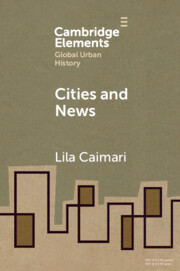1 results

Cities and News
-
- Published online:
- 23 December 2021
- Print publication:
- 10 March 2022
-
- Element
- Export citation

